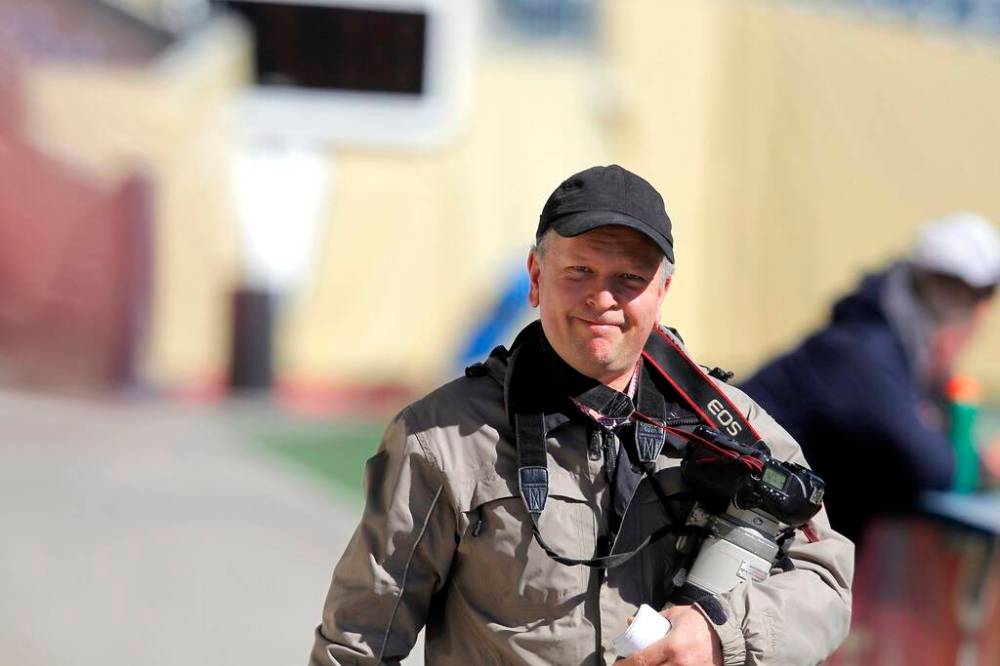Journalist’s lawyer focuses on ‘striking similarities’ of WPS officers’ notes after camera seized
Advertisement
Read this article for free:
or
Already have an account? Log in here »
To continue reading, please subscribe:
Monthly Digital Subscription
$19 $0 for the first 4 weeks*
- Enjoy unlimited reading on winnipegfreepress.com
- Read the E-Edition, our digital replica newspaper
- Access News Break, our award-winning app
- Play interactive puzzles
*No charge for 4 weeks then billed as $19 every four weeks (new subscribers and qualified returning subscribers only). Cancel anytime.
Read unlimited articles for free today:
or
Already have an account? Log in here »
Hey there, time traveller!
This article was published 26/05/2022 (700 days ago), so information in it may no longer be current.
A Winnipeg police officer was grilled about his conduct while seizing a news photographer’s camera and his subsequent notes on the incident during cross-examination at a rare Law Enforcement Review Agency hearing Friday.
The civilian oversight hearing, which began Tuesday in front of provincial court Judge Tony Cellitti, will determine whether the officer, whose name is protected under a publication ban, acted improperly when he seized Winnipeg Sun photojournalist Chris Procaylo’s camera without a warrant.
The incident occurred near Lord Selkirk Furniture at 853 Main St. after police had arrested a knife-wielding male suspect on Dec. 2, 2017. The man subsequently died following a medical incident.

Procaylo’s lawyer, Nicole Watson, questioned the 41-year-old patrol sergeant about Winnipeg Police Service seizure policies, including chain of command, whether he swore and acted intimidatingly toward the journalist — which he denied — and on his and his junior partner’s handwritten notes and typed narrative of the incident.
Watson’s line of questioning suggested the officer and his partner had collaborated when writing their notes, pointing to “striking similarities” in the two sets of notes, including that Procaylo said “he can stand where he wants,” and that the photographer was displaying freemen-on-the-land ideologies in both sets of notes, a term the officer testified was his interpretation of Procaylo’s behaviour.
Freemen-on-the-land is a term for a pseudo-legal concept that asserts someone is only bound by laws if they consent to those laws.
“I’m going to suggest to you that you and (his partner) discussed the events and the content of your notes before you wrote your catch-up notes, is that correct?” Watson said, referring to notes written shortly after an incident.
The officer testified he spoke to his partner about the incident prior to and while writing his notes, and his subsequent typed report. He said to his recollection he had not seen his partner’s notes.
Later, when asked directly whether the two collaborated on the notes, the patrol sergeant said, “We absolutely discussed this event, as we were involved in it together as partners.”
Procaylo testified earlier in the week the police officer’s partner was not nearby or within earshot until the camera was seized some distance from the business; the subject officer testified he was.
Watson also questioned the officer on whether Procaylo identified himself and that his press identification was outside of his winter coat, as the photographer testified.
In his initial testimony and under cross-examination, the patrol sergeant said he became aware of Procaylo’s identity only after seizing his camera.
Watson also questioned whether he could reasonably assume a person carrying a camera with a large telephoto lens and other lenses was a member of the media. The officer said he has seen people other than press photographers carrying similar cameras at police scenes.
He further testified he was not attempting to impede the journalist’s ability to document the event, as Watson suggested in her questioning.
The patrol sergeant’s partner is expected to testify Monday, which was initially the last scheduled day of the hearing. However, Cellitti told Watson and the officer’s lawyer, Josh Weinstein, he will set an additional hearing date to receive written and oral arguments.
erik.pindera@freepress.mb.ca
Twitter: @erik_pindera

Erik Pindera
Reporter
Erik Pindera reports for the city desk, with a particular focus on crime and justice.



